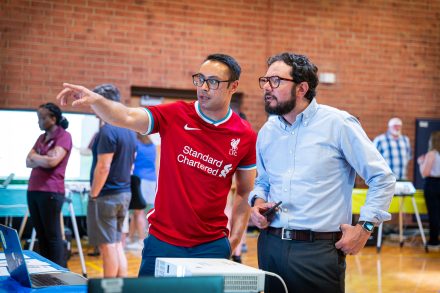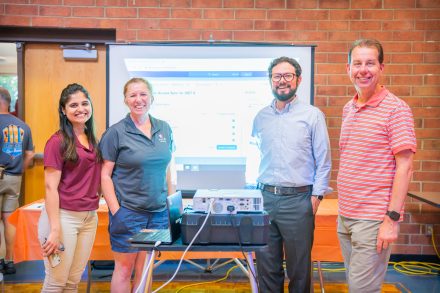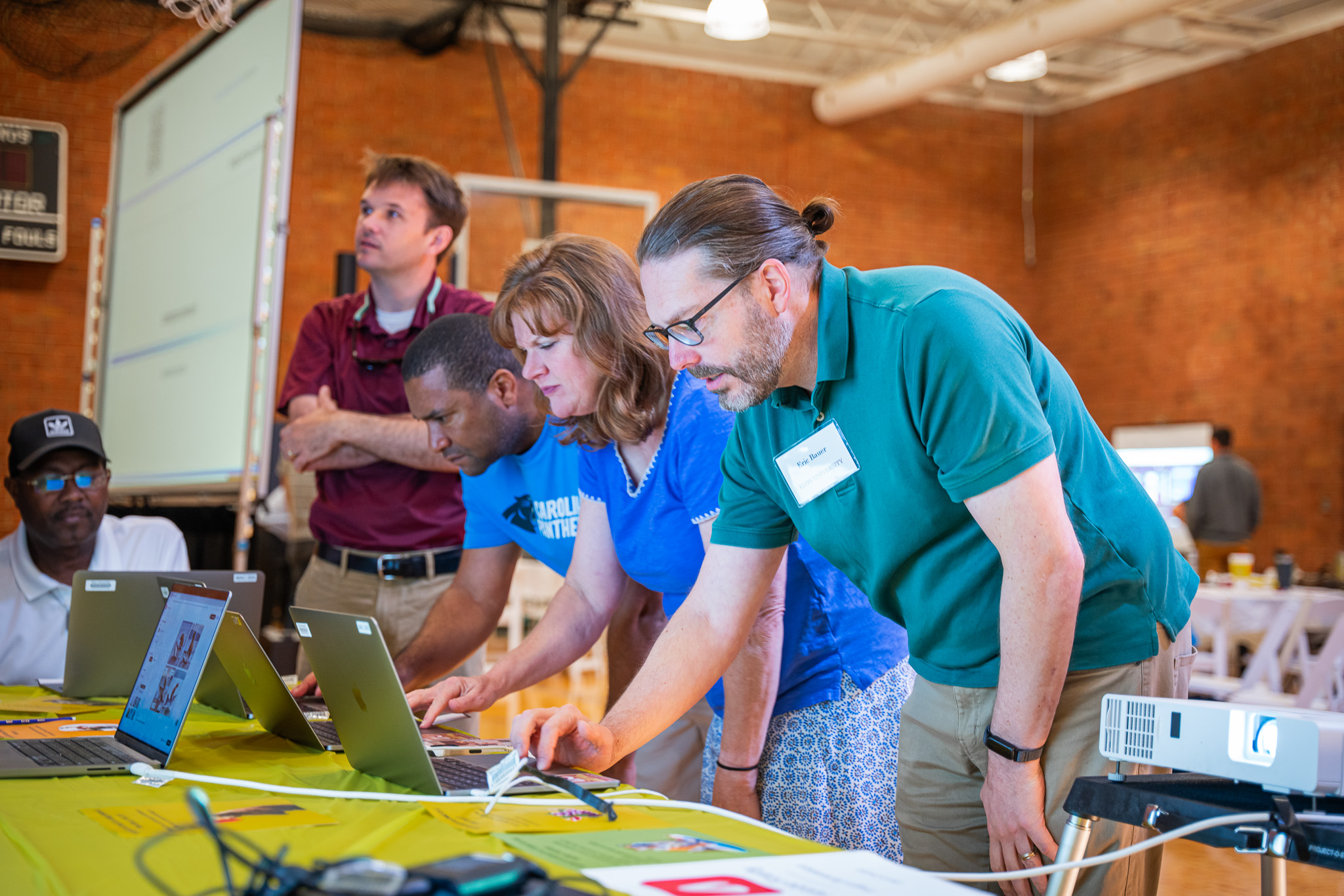Elon’s Office of Information Technology held a summer retreat focused on understanding how AI could potentially be integrated into campus operations, exploring tools like Microsoft Copilot, MagicSchool and ChatGPT to enhance productivity and teaching. The event highlighted AI’s potential to streamline work and personalize education.
As artificial intelligence continues to play a crucial role in the technology landscape, members of Elon’s Office of Information Technology (IT) engaged in extensive discussions during their annual summer retreat. Their focus was to gain a comprehensive understanding of AI utilization within the IT sector, examine its current applications across the campus community, and explore opportunities for future integration.
“We’re seeing signs that GenAI really can reduce some of the repetitive and tedious work from IT to the classroom,” said Michael Miller, an executive partner for higher education from Gartner. “In fact, it’s one of the most robust areas where it’s showing significant impact. AI is something that people everywhere are talking about, excited about and investing in. This gives folks in IT an opportunity to expand the conversation about technology in general, explore how others are using it and collaborate on ways it can be improved.”

Gartner’s predictions for how AI will evolve include 75% of businesses using generative AI to create synthetic customer data by 2026, using AI will be 30% more energy efficient by 2028 and 1/3 of generative AI interactions will not need human intervention by 2028 as GenAI action models will increase (Perry, 2024). Specifically in education, “autonomous agents can offer personalized learning experiences and adapt teaching methods to the needs of individual students” (Gartner, 2024).
The AI action continued after the presentation, as IT members had the opportunity to try different tools that focused on research, learning activity design, productivity and more. Planned and facilitated by Claudia Sparks, associate director of Enterprise Solutions, and Dhvani Toprani, assistant director of Learning Design and Support, the expo included tools such as Microsoft Copilot, ChatGPT, ClickUp Brain, Adobe Firefly, Elicit (Research) and MagicSchool AI.
“Gen AI tools are filled with infinite possibilities, so we are interested in understanding how others use these tools. The Expo felt like an excellent opportunity to give us a look into our campus partner’s world of AI.”
–Dhvani Toprani, assistant director of Learning Design and Support
“You don’t know what you don’t know, so the goal was to unlock that door and provide an avenue of deeper understanding,” Toprani said. “Everyone’s engagement made the expo so much fun, and it was delightful to see everyone’s excitement about the possibilities of AI tools.”

“The IT staff are gaining professional skills in using AI to support our campus community while exploring how they can support teaching, learning and university operations,” said Christopher Waters, associate vice president of Information Technology and chief information officer. “We also wanted the team to explore how AI is integrating into Elon’s current technology offerings, which can, almost seamlessly, improve the efficiency and effectiveness of work already happening at Elon. This includes the Microsoft Copilot chatbot, which every employee and student can access securely and freely when logged in using their Elon ID.”
“In response to the campus interest surrounding AI, we are thrilled with the number of campus members who applied for and received AI Grants through Technology at the end of the previous academic year,” said Waters. “We have formed a community of practice that will allow us to collaboratively explore the efficient and responsible use of AI across departments, ensuring the security of Elon data while enhancing our operational processes.”



